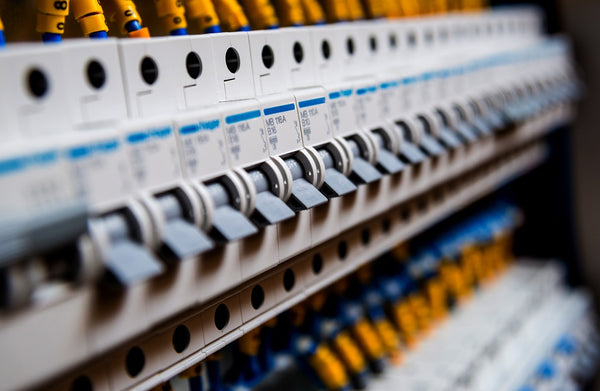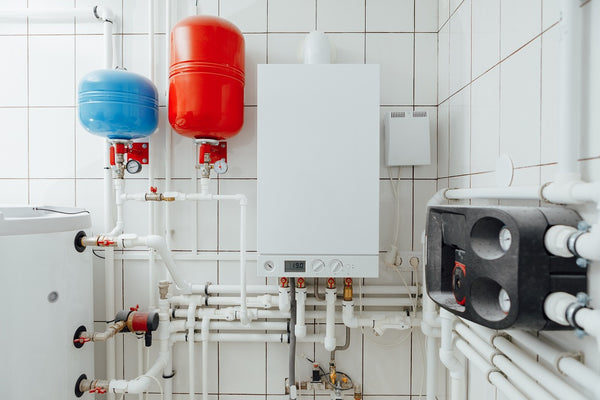Smoke and fire dampers have the function of preserving the integrity of physical barriers in the event of an emergency. HVAC dampers prevent fire and smoke from moving around the premises in urgent situations.
This HVAC fire damper serves the purpose of allowing the occupants to flee a building in crisis while allowing firefighters to access the building with ease. Fire dampers are restricted to stringent temperatures while smoke dampers are not. It is important to note that a smoke and fire damper is recommended for commercial and residential use.
How Do HVAC Fire Dampers Work?
The main purpose of fire dampers is to prevent flames from escaping a fire barrier. In an HVAC system, a fire damper has much the same purpose. Fire dampers respond to heat, and when the temperatures rise to a specific point, the dampers react.
The fire damper works as follows:
- The temperature rises to a set point.
- The dampers detect the temperature change.
- The sensors attached to the dampers respond which, in turn, activates the actuators.
- The fire and smoke damper actuators move to their safety position.
- The fusible link, which is connected to the damper, melts, causing the damper doors to close.
The typical setpoint for a smoke and fire damper is usually 165 degrees Fahrenheit. However, damper fuses with a higher melting point of up to 212 degrees Fahrenheit are available on the market.
In fire emergencies, the largest cause of death is smoke inhalation and the inhalation of toxic gases. So, ensuring that the smoke and fire damper works properly can save lives. These HVAC fire dampers are practical because they can be used to safeguard lives via the fire dampers in the ductwork that runs through the entire building.
Rectangular & round, manual & motorized: buy dampers at Blackhawk Supply store!
HVAC DAMPERS FOR SALETypes of Fire Dampers in HVAC
Static Fire Dampers in HVAC Systems
Static fire dampers are situated in the vertical barriers of an HVAC unit. This type of fire damper has a loaded design because of its location in the vertical barriers. In this design, the doors of the fan and the damper meet a spring-like action when they are forced shut in the event of an emergency.
Dynamic Fire Dampers
Dynamic fire dampers, on the other hand, are in the barriers of the HVAC unit where the fan will shut off when forced to do so. These dampers are installed in horizontal barriers, and when the HVAC system fan shuts off, the pressure dissipates and the door of the damper will shut as a result.
HVAC Fire vs Smoke Dampers: What's the Difference?

Fire dampers are put in place to stop the passage of fire by preserving the integrity of smoke barriers such as floors and walls. A fire damper reacts to heat and rising temperature, so once the temperature exceeds a set point, it springs into action. Primarily, you will find fire dampers in ductwork and air conditioning systems.
Smoke dampers are situated in places where smoke could represent a significant challenge. Smoke dampers react to the presence of smoke; they block smoke and toxic gases from escaping to prevent injuries and possibly death. These smoke dampers are typically activated by smoke detectors that are situated within the ductwork.
Apart from the fact that fire dampers and smoke dampers have similar features, what greatly separates them is obvious. The former responds to heat whilst the latter responds to smoke or toxic gases. In addition, another key element that separates the two is that smoke dampers are not restricted by temperature while fire dampers are.
Industrial Applications of Fire Dampers
Industrial dampers are built for heavy-duty industrial settings and crop up in many different types of industries that require PFP (passive fire protection) to function properly such as industries like gas or oil drilling sites, turbines, power generation, and many more. PFP works in tandem with active fire protection (AFP) to protect an industrial facility.
-
Waste-water treatment facilities
-
Paper Mills
-
Textile industry
-
Marine exploration and drilling
-
Mining
-
Transit industry
-
Water-power generation such as Hydroelectric plants
-
Nuclear power generation.
Most industries will use industrial fire dampers and view them as an indispensable component of industrial air and ventilation systems.
NFPA Codes Applied to Industrial Dampers
The NFPA (National Fire Protection Association) has put in place a wide range of codes to ensure fire protection in industrial settings. This includes codes such as NFPA803, which is a code of standard for fire protection for light-water nuclear power plants. Their codes and requirements for fire safety range from HVAC systems to building codes to protect every type of facility.
For example, they require fire-resistant doors and fire dampers which will protect the openings of the ducts to prevent fire from spreading through the entirety of the building. The NFPA also recognizes that not abiding by the codes and regulations, such as placing smoke and fire dampers in the appropriate locations, could have dire consequences.
Other examples of codes by the NFPA are outlined below.
These codes are put into place to protect and safeguard lives.
Conclusion
It is important to note that smoke and fire dampers are a vital addition to any HVAC unit. Their applications are widespread, and their life-saving features cannot be overlooked. Now that Blackhawk Supply have examined smoke dampers vs fire dampers, we can come to only one conclusion: shop HVAC dampers now and make sure that you and your business have a fighting chance in the event of a fire emergency. Smoke and fire dampers are versatile and are suitable for a wide range of industries. Don't hesitate to contact us for additional information!





